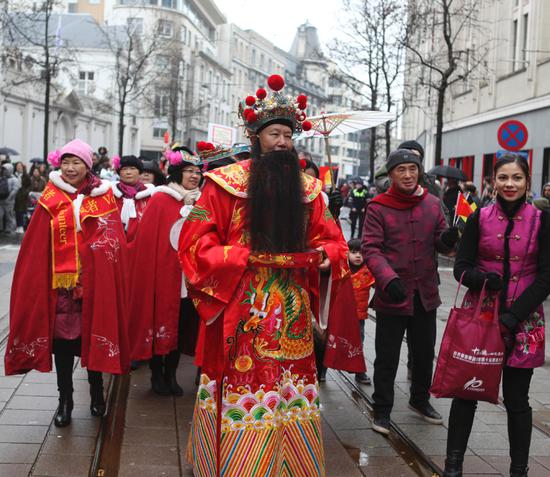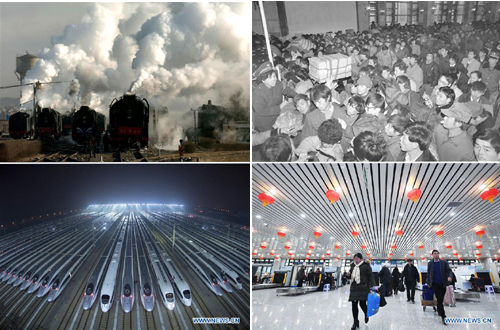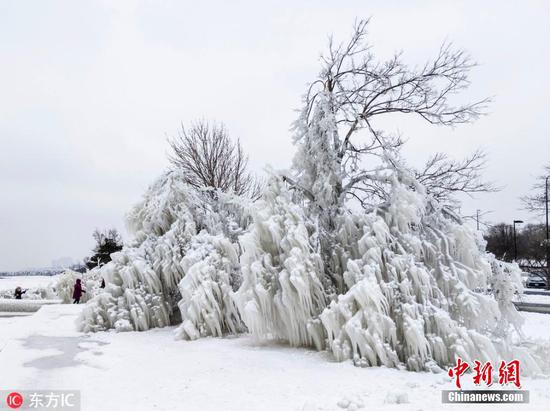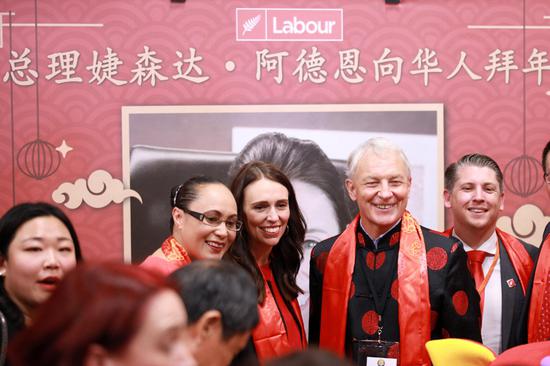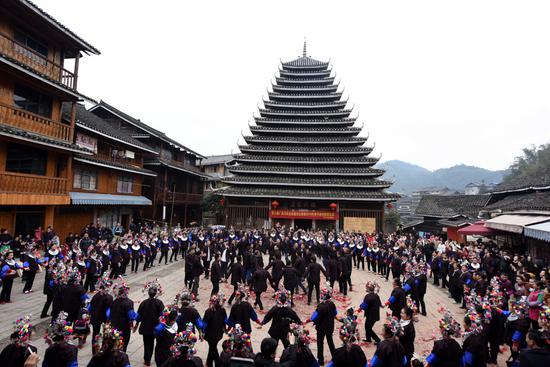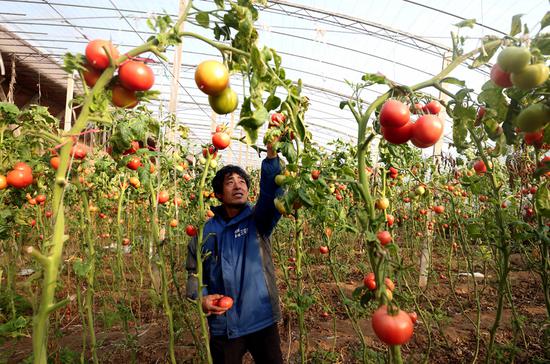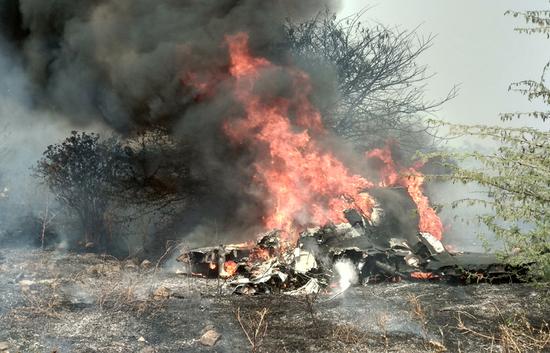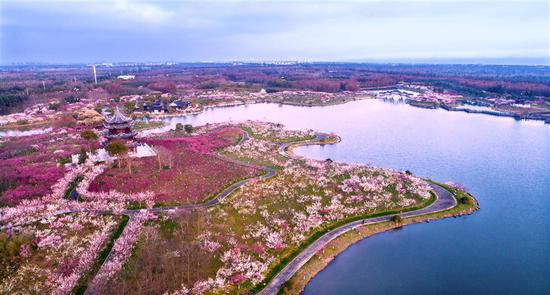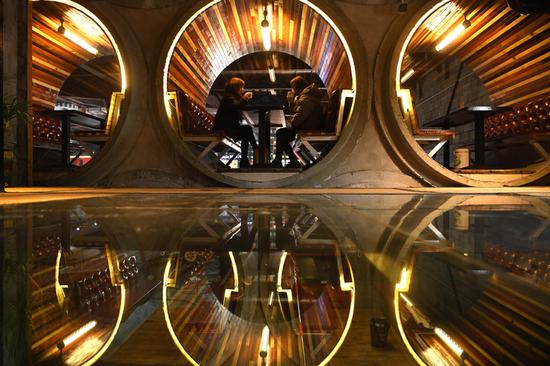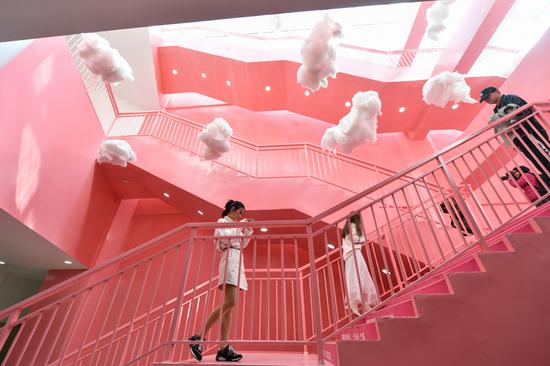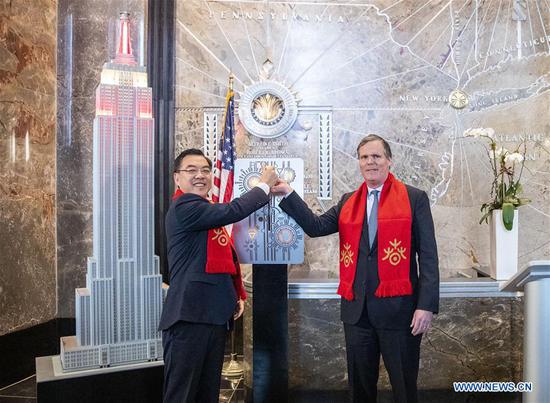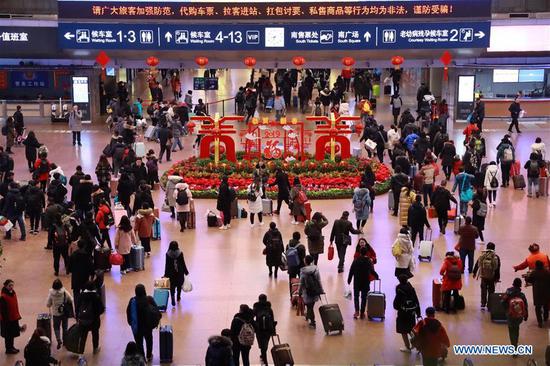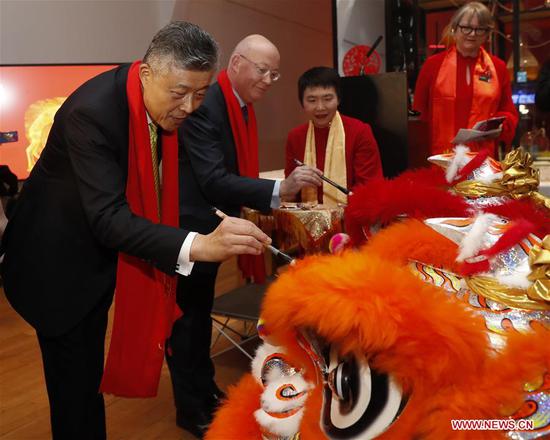U.S. President Donald Trump called for unity and bipartisanship in his State of the Union address Tuesday night, given a divided Congress after two years of bitter partisan fight and heightened political polarization.
In an 80-minute-plus speech, Trump touched upon a variety of topics and priorities of his administration for the coming year, including immigration, trade and economy, infrastructure, health care, and national security.
MESSAGE OF UNITY AMID SKEPTICISM
Speaking to a joint session of Congress in the House of Representatives, Trump encouraged Congress to "reject the politics of revenge, resistance and retribution, and embrace the boundless potential of cooperation, compromise and the common good."
"Together we can break decades of political stalemate," he said. "We can bridge old divisions, heal old wounds, build new coalitions, forge new solutions, and unlock the extraordinary promise of America's future. The decision is ours to make."
However, before the address, Senate Democratic leader Chuck Schumer accused Trump of "blatant hypocrisy," saying the president might talk about unity in his address to the nation on Tuesday but "spends the other 364 days of the year dividing us." He also tweeted that even emptier than Trump's policy promises are his "calls each year for unity."
Tuesday night's remarks were Trump's second State of the Union address and his third speech to a joint session of Congress but the first facing a divided Congress. Republicans lost control of the House after eight years in power during the 2018 midterm elections, while holding onto their majority in the Senate.
Democratic heavyweight Nancy Pelosi, now the House speaker, was sitting behind the president during his speech, next to Vice President Mike Pence. Many female lawmakers, including Pelosi, were dressed in white appearing on the House floor to show solidarity with the women's suffrage movement.
The lack of agreement between the White House and Congressional Democrats over whether to provide billions of U.S. dollars for a border wall along the U.S.-Mexico border had caused a historic 35-day partial government shutdown, which temporarily ended on Jan. 25, and affected the jobs and lives of hundreds of thousands of federal employees.
A tit-for-tat political brawl between Trump and Pelosi over the shutdown delayed the president's annual update to Congress, originally slated for Jan. 29.
Stacey Abrams, who narrowly lost her bid in Georgia state last year to become the first black female U.S. governor, blamed the shutdown on Trump, when delivering the Democratic rebuttal shortly after the president's speech.
"The shutdown was a stunt engineered by the president of the United States, one that defied every tenet of fairness and abandoned not just our people but our values," she said. "Making their livelihoods a pawn for (his) political game is a disgrace."
Darrell West, a senior fellow with Washington-based think tank Brookings Institution, told Xinhua that "Trump deserves credit in calling for unity and bipartisanship."
"Yet he needs to back this up with meaningful action," he said. "No one will take his bipartisanship call seriously unless he acts and speaks in a far different manner."
WIDE-RANGING TERRITORY
Trump expectedly spent a swath of the speech on his hardline immigration agenda, claiming there is a "national crisis" at the southern border and arguing how a border wall, a plank of his 2016 presidential campaign, could help strengthen the nation's southern border and curb illegal immigration and crimes.
Trump also dug in on his proposal, saying that he will get the border wall built, while explaining that the project will be "a smart, strategic, see-through steel barrier -- not just a simple concrete wall" and be "deployed in the areas identified by border agents as having the greatest need."
Democrats have rejected the idea of a border wall, slamming it as expensive, ineffective and "immoral" and called the proposal Trump's "political theater" to fire up his base, while they prefer the use of technology like drones and sensors in strengthening border security.
Pelosi has made clear that "there's not going to be any wall money" in legislation for the rest of this year, as a group of bipartisan lawmakers are negotiating a deal on border security, with a deadline of Feb. 15, to avoid another partial shutdown.
Trump did not declare a national emergency over illegal immigration when addressing the nation on Tuesday, though he had hinted he might do so, raising the prospect of a second government shutdown.
Such a declaration, if made, would enable him to bypass congressional approval and redirect funds already allocated by Congress for other purposes, possibly at the Pentagon, to his desired border wall but would also draw political backlash and court challenges and risk unity of the Republican Party.
Besides, Trump touted the nation's economic performance and progress his administration has made with other economies in trade negotiations, stressed the criminal justice reform bill passed with bipartisan support, and called for investment in the nation's infrastructure for the third year in a row.
Ford O'Connell, a Republican strategist, told Xinhua both parties would agree that the nation's infrastructure "needs to be refurbished" and "there's something where they could agree."
"But I think where they're going to get caught is how to pay for it," O'Connell said. "How it's going to be paid for is something that Trump will disagree with Democrats on."
The president also proposed lowering the cost of health care and prescription drugs and promised an end to HIV transmissions in the United States within 10 years.
Pertaining to matters of national security, the president defended some of his controversial decisions, including withdrawing the United States from the Iran nuclear deal and the Intermediate-Range Nuclear Forces Treaty, as well as the administration's Middle East policy.
He also announced that he will meet with the top leader of the Democratic People's Republic of Korea, Kim Jong Un, on Feb. 27-28 in Vietnam.
HALFWAY THROUGH FIRST TERM
In the first two years of Trump's first term, the administration has rolled out a series of domestic and foreign policies, riddled with controversies that have brought impact onto both the United States and the rest of the world.
"Much of his presidency has been divisive and confrontational," West said.
Domestically, Republicans and Democrats have bogged down in political differences and bitter confrontations, with the effect rippling into various sectors of the U.S. society, including not only media but also campus activities, sports events and even family parties.
According to an NBC News poll conducted following the November midterm elections, most voters felt that the nation's political rift is growing, an opinion spanning the partisan spectrum.
More than three in four voters nationwide said that Americans are becoming more politically divided, while just 8 percent said Americans are becoming more united.
Dan Mahaffee, senior vice president and director of policy at the Center for the Study of Congress and the Presidency, told Xinhua that "many of the accomplishments of the administration have been overshadowed by divisive policies and self-inflicted controversies," including travel bans and family separation at the border.
So far this year, the administration's agenda "has been largely focused on border security and the government shutdown," which "really narrowed the lane for cooperation with Congress," Mahaffee noted. "Perhaps, the State of the Union will reflect an attempt by the administration to reset that."
Newly-empowered Democrats, meanwhile, have moved to bring more checks and balances to the White House, a political reality that analysts say Trump has not encountered with in the first half of his term but would likely force the administration into acting in a more bipartisan manner.











